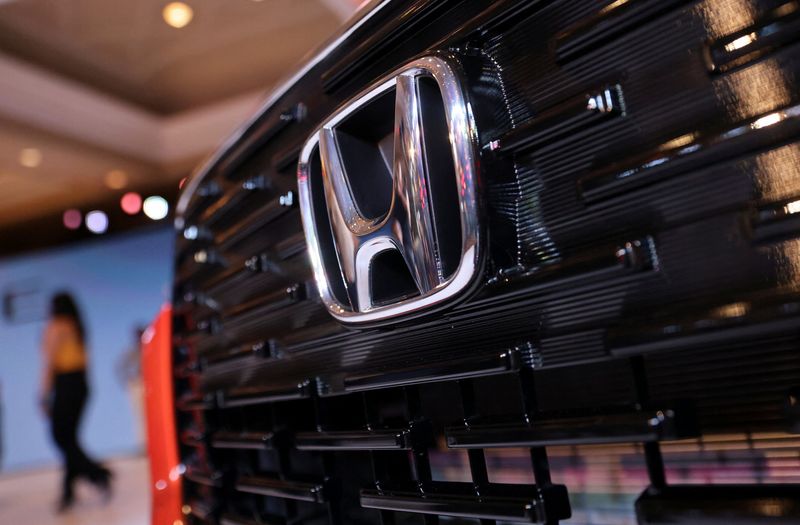TOKYO (Reuters) -Honda Motor Co said on Friday it would increase R&D spending this financial year by nearly a quarter to boost its competitive edge in hybrid and other electrified vehicles, as it forecast a 2.8% rise in operating profit for 2024/25.
Japan's second-largest automaker by volume announced a share buyback worth up to 300 billion yen ($1.93 billion) after beating analysts' fourth quarter earnings estimates, helped by strong sales growth in the United States, which offset a decline in China.
A weaker Japanese yen and robust hybrid model sales also contributed to Honda (NYSE:HMC)'s profit.
The company forecast full-year operating profit would rise to 1.42 trillion yen compared with an average profit estimate of 1.39 trillion yen in a poll of 22 analysts by LSEG.
Honda, which is a latecomer to purely electric vehicles that only run on a battery, plans to spend 1.19 trillion yen for research and development this year, up 23% from the previous year, it said.
"Our current plan is to create an environment that allows us to produce 2 million hybrid models in a year by 2030, and we have been planning our business strategy taking into account necessary investment," CEO Toshihiro Mibe told reporters.
Operating profit for the three months to March 31 grew more than six-fold from a year earlier to 305.6 billion yen, well ahead of the 248.3 billion yen average expected by nine analysts.
Car makers are focusing more on hybrid vehicles as sales of fully electric vehicles disappoint. South Korea's Hyundai Motor (OTC:HYMTF) Co said on Wednesday that it plans to use investment already lined up for the United States to produce hybrid vehicles at its electric vehicle plant there.
Honda's Mibe said he is seeing "good progress" in ongoing talks with rival Nissan (OTC:NSANY) Motor over a possible partnership to collaborate on producing EV components, and that he hopes to update the market in the near future.
For the January-March period, Honda posted a 17% sales rise in its biggest overseas market, the U.S., to about 378,000 vehicles. However, its sales in China fell by more than 6% to about 207,000 vehicles. In China, the world's biggest auto market, Honda is amongJapanese car brands that have struggled against more nimble andfaster-moving local rivals that have attracted Chinese driverswith low-cost, technology-loaded electric vehicles.

The company said last month it plans to build an EV production base in Ontario, Canada and launch six EV models branded Ye in China by 2027.
($1 = 155.6800 yen)